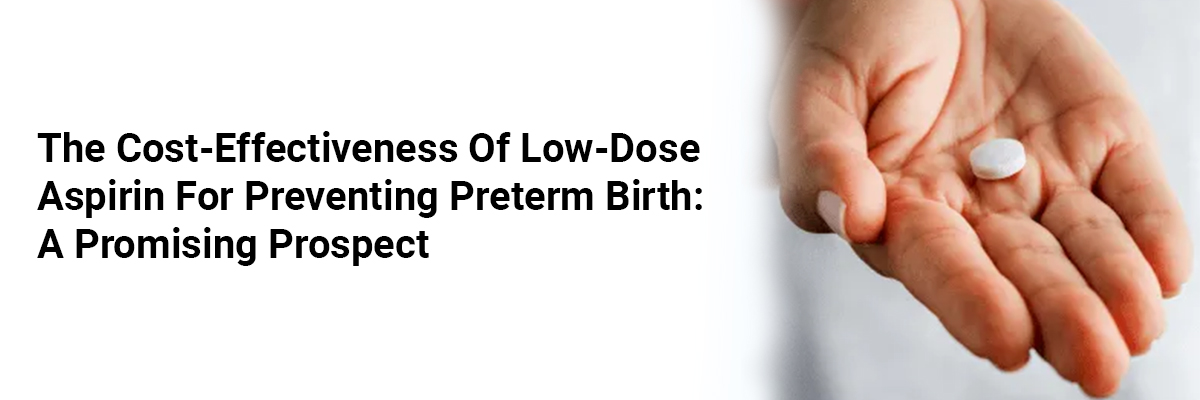
The Cost-Effectiveness of Low-Dose Aspirin for Preventing Preterm Birth: A Promising Prospect
Preterm birth remains a leading cause of neonatal morbidity and mortality worldwide, with limited preventive strategies—particularly in low-resource settings. Low-dose aspirin (LDA) has recently emerged as a simple, affordable intervention with the potential to make a major public health impact.
Building on the landmark 2020 ASPIRIN trial, which demonstrated that daily low-dose aspirin reduced the risk of preterm birth among nulliparous women with singleton pregnancies, a new economic evaluation has now assessed the cost-effectiveness of LDA therapy in low- and middle-income countries (LMICs).
Using primary data from the ASPIRIN trial and published outcomes, researchers compared LDA treatment with standard care, considering direct healthcare costs, pregnancy outcomes, and neonatal care utilization.
The analysis revealed that for every 10,000 pregnancies, LDA treatment could prevent 141 preterm births, 74 perinatal deaths, and 31 hospitalizations. The resulting costs were remarkably low: $248 per preterm birth averted, $471 per perinatal death averted, and just $15.95 per disability-adjusted life year (DALY) averted.
These findings underscore the strong case for incorporating LDA into public health strategies in LMICs. The intervention is not only clinically effective but also cost-efficient—meeting and surpassing widely accepted thresholds for cost-effectiveness.
“Low-dose aspirin represents an affordable, scalable, and impactful approach to reducing preterm birth and perinatal mortality,” the authors concluded. “Prioritizing its implementation in publicly funded healthcare systems could substantially improve maternal and neonatal outcomes.”
As global health systems seek cost-effective tools to address persistent disparities in maternal and newborn care, LDA emerges as a promising and practical solution, offering healthier beginnings for mothers and babies worldwide.














Please login to comment on this article